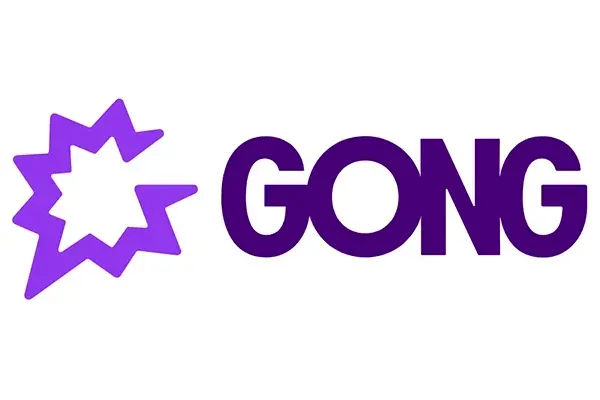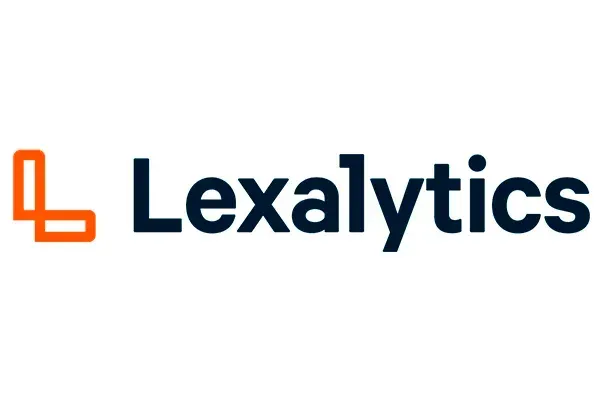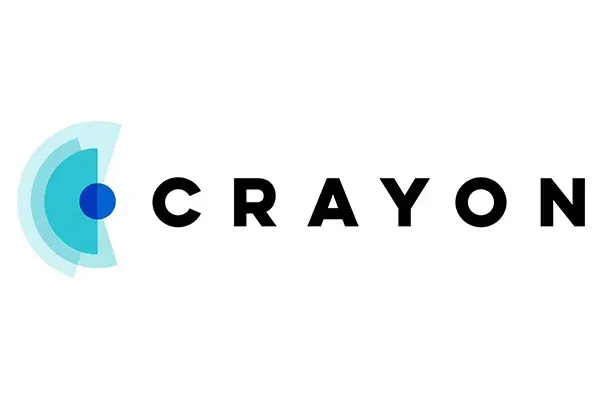7 Powerful AI Tools for Market Research That Uncover Game-Changing Insights
What is AI Market Research?
AI market research refers to the use of artificial intelligence (AI) technologies, such as machine learning and natural language processing (NLP), to gather, analyze, and interpret large amounts of data related to market trends, consumer behaviour, and customer preferences. It enhances traditional research methodologies, allowing businesses to extract data-driven insights more efficiently and accurately.
AI market research tools are designed to automate and enhance various aspects of the market research process, providing faster, more accurate, and more actionable insights so that businesses can make informed decisions. An AI market analysis tool offers real-time data updates, integrates multiple data sources, and includes features for competitor analysis, making it a versatile and user-friendly platform that surpasses traditional market research methods. Selecting the appropriate AI tool based on specific research goals is crucial to maximize the effectiveness and accuracy of the insights obtained.
By leveraging AI, companies can delve deeper into market trends and consumer behaviour, uncovering patterns and insights that traditional methods might miss. This not only streamlines the research process but also elevates the quality of the insights derived, making AI an indispensable asset in the modern market research toolkit.
Definition of AI Market Research
AI market research refers to the application of artificial intelligence technologies, such as machine learning and natural language processing, to collect, analyze, and interpret data related to market trends, consumer behaviour and competitor activities. These AI market research tools are designed to automate and enhance various aspects of the market research process, offering businesses faster, more accurate, and more actionable insights. By leveraging AI, companies can efficiently process large volumes of data, uncovering patterns and trends that might be missed through traditional methods. This not only streamlines the research process but also elevates the quality of insights, making AI an invaluable asset in understanding market dynamics and consumer preferences.
Benefits of Using AI for Market Research
- Automation of Repetitive Tasks: AI tools streamline data collection and processing, reducing manual efforts and freeing up time for more strategic initiatives.
- Improved Data Accuracy: AI minimizes human error and enhances data quality, ensuring more reliable insights.
- Pattern and Trend Identification: AI algorithms excel at detecting patterns in vast datasets, providing deeper and faster insights than manual analysis.
- Actionable Insights: AI-generated reports and recommendations help businesses make informed decisions with confidence.
- Combining AI with Human Expertise: While AI algorithms can minimize human error and provide valuable insights, integrating these tools with the knowledge and judgment of human professionals leads to superior outcomes. This combination enhances accuracy and effectiveness in market analysis.
How AI Market Research Tools Work
Overview of AI Market Research Tools
AI-powered market research tools use sophisticated algorithms to analyze data from multiple sources, including social media, customer feedback, and competitive market trends. These tools facilitate various research functions, such as:
- Data collection from multiple channels
- Sentiment analysis and text analytics
- Predictive modelling and forecasting
- Competitive intelligence tracking
While it is true that creating an AI research technology-enabled foundation represents one of the best investments of your time, you don't need to acquire a disparate set of tools to establish that foundation. However, you must invest the time and energy to develop the dashboards, workflows, and automation necessary to give your business a competitive edge.
How AI Tools Analyze Data for Market Research
- Natural Language Processing (NLP): AI tools analyze textual data from online reviews, feedback, and social media to gauge customer sentiment and extract key insights rapidly from market reports and surveys.
- Machine Learning (ML) Algorithms: These models identify trends and correlations within large datasets.
- Real-Time Analysis: AI enables real-time tracking of market trends, allowing businesses to stay ahead of competitors.
Top AI Market Research Tools
1. Gong.io – Call Insights and Sales Research

Gong.io specializes in revenue intelligence and conversation analytics, providing businesses with deep insights from customer calls. Key benefits include:
- Contextual and Referential Insights: Extracts key trends from sales calls and customer interactions.
- AI-Driven Recommendations: Provides actionable insights to improve sales strategies.
- Ideal for: Sales teams, researchers, and marketers conducting customer interviews.
2. YouScan – Social Media Analysis

YouScan is an AI-powered social listening tool that monitors brand mentions and customer sentiment across social media platforms. Features include:
- Image and Text Analysis: Detects brand presence in images and text.
- Real-Time Insights: Provides instant feedback on public perception and emerging trends.
- Ideal for: Brands and companies heavily engaged in social media marketing.
3. Consensus – Quick and Reliable Scientific Insights

Consensus uses AI to analyze scientific studies and provide concise, research-backed insights. Essentially, it is a search engine for academic research. It offers:
- Advanced NLP and Machine Learning: Extracts relevant information from scientific databases.
- Simplified Research Results: Presents data in an easy-to-understand format.
- Ideal for: Academics, marketers, and professionals seeking data-backed insights.
4. Lexalytics – Advanced Text Analytics and Sentiment Analysis

Lexalytics is a text analysis tool that helps businesses understand consumer sentiment and intent from large volumes of written data. Features include:
- Sentiment and Topic Analysis: Identifies positive or negative opinions.
- Entity Recognition: Detects key names, places, and themes.
- Ideal for: Marketing teams, product managers, and customer support teams.
5. Crayon – Competitive Intelligence and Market Analysis

Crayon provides AI-driven competitive intelligence to track competitor activity. Key advantages:
- Real-Time Competitor Monitoring: Tracks changes in pricing, messaging, and product launches.
- Organized Insights: Helps businesses develop strategic responses to market shifts.
- Ideal for: Competitive intelligence teams and strategic planners.
6. Poll The People – AI-Powered Crowdsourced Decision-Making

Poll The People enables businesses to gather feedback quickly through AI-powered surveys. Features include:
- Diverse Audience Reach: Connects with global respondents for valuable insights.
- AI-Enhanced Data Processing: Analyzes feedback trends to inform decision-making.
- Ideal for: Marketers, UX designers, and product developers.
7. ChatSpot – AI-Driven Research and Data Analysis

ChatSpot by HubSpot is an AI assistant that simplifies data research. It is the marriage of HubSpot + ChatGPT. Highlights include:
- AI-Powered Insights: Combines ChatGPT with data analytics for real-time insights.
- Seamless Integration: Works within the HubSpot ecosystem for easy data management.
- Ideal for: Business analysts, sales teams, and content creators.
Choosing the Right Market Research Tool
Factors to Consider When Selecting a Market Research Tool
- Data Type & Needs: Identify the kind of data required and the insights sought. Consider how AI can enhance efficiency and effectiveness in gathering and analyzing data through advanced research processes, allowing researchers to save time and focus on deriving actionable insights.
- Cost & Scalability: Consider affordability and whether the tool scales with business growth.
- User-Friendliness: Ensure the tool has an intuitive interface.
- Integration Capabilities: Check if the tool integrates with existing business systems.
How to Evaluate the Effectiveness of a Market Research Tool
- Accuracy & Reliability: Assess the credibility of insights provided.
- Actionability of Insights: Determine if the recommendations are practical.
- Ease of Use: Evaluate how user-friendly and efficient the tool is.
- Integration with Other Tools: Ensure seamless connectivity with existing software.
Leveraging AI for Better Market Insights
How AI Market Research Tools Help Track Market Trends
- Real-Time Data Analysis: Provides instant insights into consumer behavior.
- Pattern Recognition: Detects shifts in trends before they become mainstream.
- Competitor Tracking: Helps businesses adjust strategies based on competitor movements.
Insights on Current Market Trends and Their Impact on Businesses
- Consumer Behavior Analysis: AI tools help businesses anticipate customer needs.
- Competitor Monitoring: AI provides deep insights into competitive strategies.
- Market Adaptation: Enables agile decision-making based on real-time market conditions.
How to Use AI Market Research Tools to Stay Ahead of the Competition
- Leverage AI to Analyze Large Datasets: Gain deep insights into market trends.
- Identify Emerging Patterns: Use predictive analytics to anticipate shifts.
- Enhance Strategic Planning: Make informed decisions using AI-driven insights.
Future Trends in AI Market Research
The future of AI market research is poised to be shaped by groundbreaking technologies and innovations that will continue to revolutionize how businesses gather and analyze market data. Key trends expected to influence the future include:
- Advanced Machine Learning and Deep Learning Algorithms: These technologies will enable the analysis of complex data sets, identifying patterns and trends that traditional methods might overlook.
- Enhanced Natural Language Processing (NLP): NLP will play a crucial role in extracting insights from unstructured data sources like social media, customer feedback, and online reviews, providing a deeper understanding of consumer sentiment.
- Integration with Emerging Technologies: AI will increasingly be combined with the Internet of Things (IoT), blockchain, and augmented reality (AR) to create innovative market research tools and methodologies.
- AI-Powered Chatbots and Virtual Assistants: These tools will become more prevalent in data collection and providing insights, offering businesses and consumers a more interactive and efficient way to gather information.
These trends highlight the ongoing evolution of AI in market research, promising more sophisticated and effective tools for businesses to anticipate market trends.
Emerging Technologies and Innovations
Several emerging technologies and innovations are set to shape the future landscape of AI market research:
- Quantum Computing: This technology has the potential to revolutionize data analysis by processing complex data sets at unprecedented speeds, uncovering patterns and trends that were previously unattainable.
- Edge AI: By enabling AI processing at the edge of the network, this technology reduces latency and enhances real-time data analysis, making it ideal for dynamic market environments.
- Explainable AI (XAI): XAI provides transparency into how AI algorithms make decisions, increasing trust and understanding of AI-generated insights.
- Autonomous Systems: These systems can operate independently, automating tasks and delivering real-time insights, further streamlining the market research process.
These innovations will significantly enhance the capabilities of AI market research tools, providing businesses with more powerful and transparent tools for data analysis.
Predictions for the Future of AI in Market Research
Looking ahead, several predictions can be made about the future of AI in market research:
- Ubiquity of AI Tools: AI will become a standard component of market research, with more businesses adopting AI-powered tools to gather and analyze data. With little to differentiate between the various LLMs and the gap narrowing, the customer will emerge as the benefactor of this advancement in technology.
- Faster Decision-Making: AI will enable businesses to make quicker, more informed decisions, reducing the time and cost associated with traditional market research methods.
- Innovative Consumer Engagement: AI will offer new ways for businesses to engage with consumers and gather feedback, improving the accuracy and relevance of market research data.
- Transformation of the Market Research Industry: AI will continue to reshape the industry, creating new job opportunities and requiring market researchers to develop new skills and expertise.
These predictions underscore the transformative impact of AI on market research, driving efficiency, accuracy, and innovation.
Challenges and Limitations of AI in Market Research
While AI holds great promise for revolutionizing the market research industry, it also presents several challenges and limitations that need to be addressed:
- Data Quality: AI algorithms rely on high-quality data to produce accurate and reliable insights. Poor data quality can lead to biased or inaccurate results, undermining the value of AI-generated insights.
- Bias: AI algorithms can perpetuate existing biases present in the data, leading to skewed or unfair insights. Ensuring unbiased data and algorithms is crucial for reliable market research.
- Transparency: The complexity of AI algorithms can make it difficult to understand how insights are generated, posing challenges in explaining and validating AI-driven conclusions.
- Human Expertise: Despite the advanced capabilities of AI, human expertise is essential to interpret and validate results, ensuring that insights are accurate, relevant, and actionable.
Addressing these challenges is vital for maximizing AI's benefits in market research and ensuring the reliability and fairness of AI-driven insights.
Potential Challenges in Implementing AI Tools
Implementing AI tools in market research comes with its own set of challenges:
- Integration with Existing Systems: AI tools may require significant changes to existing systems and processes, which can be time-consuming and costly.
- Technology Cycle: Unlike building a brick wall, technology is ever-evolving. New standards and protocols emerge, and updates to existing systems all have the potential to disrupt an established workflow and integration, requiring someone with the necessary expertise to fix and maintain them.
- Data Preparation: Preparing high-quality data for AI algorithms is resource-intensive, requiring significant time and effort to ensure accuracy and reliability.
- Talent and Skills: Implementing and interpreting AI-powered market research tools require specialized talent and skills, which can be challenging to find and develop.
- Cost: Implementing and maintaining AI tools can be expensive, which can be a barrier for small and medium-sized businesses.
Overcoming these challenges is crucial for effectively integrating AI tools into the market research process and fully harnessing their potential to provide better insights. We have witnessed the power of AI firsthand. This is why we chose to establish our growth agency: to assist other entrepreneurs and SMBs in growing and scaling their businesses.
Benefits of Using AI for Market Research
1. Improved Efficiency and Accuracy
AI market research tools have significantly improved the efficiency and accuracy of the market research process. By automating tasks such as data collection, data cleaning, and report generation, AI tools can save researchers a significant amount of time and effort. These tools can sift through vast amounts of data quickly and accurately, reducing the risk of human error and bias. This automation allows market researchers to focus on higher-level tasks such as strategic decision-making and providing actionable insights to stakeholders. The ability to process and analyze data at such a rapid pace means that businesses can stay ahead of market trends and respond to consumer behaviour changes in real time, making AI tools a game-changer in the market research process.
2. Enhanced Customer Insights and Personalization
AI tools deliver personalized customer insights, resulting in improved engagement and customized marketing campaigns. They assist businesses in understanding consumer sentiment, preferences, and purchasing behaviour.
3. Better Decision-Making and Strategic Planning
AI-driven insights allow businesses to enhance their strategies based on data instead of guesswork. This approach helps organizations adapt swiftly to market shifts and consumer expectations.
Conclusion
AI market research tools are transforming the way businesses analyze and interpret market data. By leveraging the power of AI, organizations can gain real-time insights, improve decision-making, and stay ahead of the competition. Whether it's tracking brand sentiment, analyzing customer feedback, or identifying market trends, AI-driven tools are essential for businesses looking to thrive in today’s dynamic marketplace.
Recap of the Benefits and Importance of AI Market Research Tools in Driving Better Insights for Market Research
AI market research tools have revolutionized the market research industry by providing faster, more accurate, and more actionable insights. These tools have improved the efficiency and accuracy of the market research process, enabling researchers to focus on higher-level tasks and providing valuable insights to stakeholders. The benefits of AI market research tools include:
- Improved Efficiency and Accuracy: Automation of repetitive tasks and reduction of human error.
- Faster Turnaround Times: Quick data processing and analysis.
- Enhanced Data Analysis Capabilities: Ability to analyze large amounts of data quickly and accurately.
- Reduced Risk of Human Error and Bias: Ensuring more reliable insights.
- Actionable Insights and Recommendations: Providing practical and data-driven recommendations.
- Improved Decision-Making Capabilities: Enabling businesses to make informed decisions based on accurate data.
Overall, AI market research tools are essential for businesses looking to stay competitive in today’s data-driven world. By leveraging these tools, businesses can gain a deeper understanding of their target audience, track market trends, and make informed decisions to drive growth and success. Integrating AI into the market research process not only enhances the quality of insights but also empowers businesses to act swiftly and strategically in a rapidly evolving marketplace.
Contact us if you are looking for help in growing and scaling your business.
Share

Maxim Atanassov, CPA-CA
Serial entrepreneur, tech founder, investor with a passion to support founders who are hell-bent on defining the future!
I love business. I love building companies. I co-founded my first company in my 3rd year of university. I have failed and I have succeeded. And it is that collection of lived experiences that helps me navigate the scale up journey.
I have found 6 companies to date that are scaling rapidly. I also run a Venture Studio, a Business Transformation Consultancy and a Family Office.
